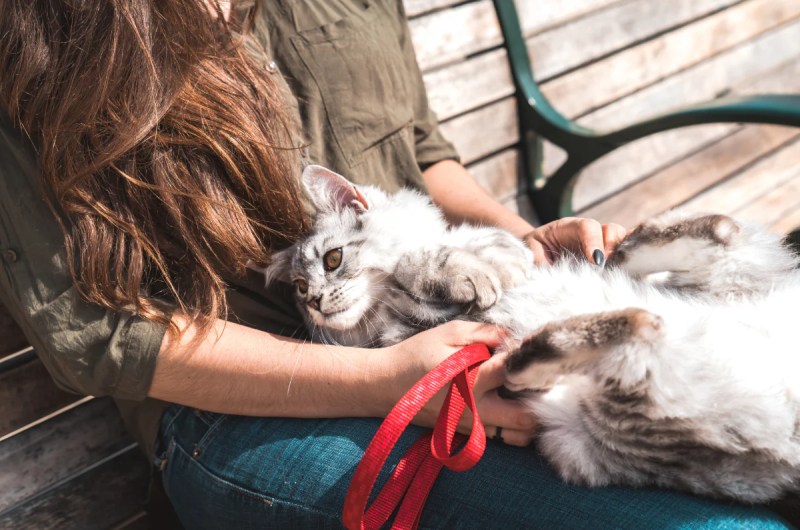Where Can I Get My Cat Vaccinated For Cheap – Regular vaccinations give your cats and kittens a strong immune system that prevents disease. Our team at Bridgewater Veterinary Hospital and Wellness Center is ready to help you give your pet a healthy life through vaccinations. Our hospital has all legally prescribed vaccines: leukemia, rabies and FVRCP. It is important to understand that our veterinarians treat each patient individually. Therefore, vaccines are highly dependent on your pet’s risk factors, such as age, lifestyle and general health. We encourage you to make an appointment to set up a vaccination plan for your cats and kittens by calling us at 204-452-0911.
All cats, regardless of lifestyle (such as indoor or outdoor cats), should receive full vaccinations, especially when they are young. Vaccination of kittens usually begins at 6 weeks of age.
Where Can I Get My Cat Vaccinated For Cheap

Adult cats are vaccinated one year after vaccination of kittens is completed. Some cats may require vaccinations against FVRCP, distemper, rabies and leukemia.
Kitten Vaccine Schedule
Vaccines play an important role in your pet’s health and have little chance of side effects. Some cats experience side effects, but pet owners should not worry unless they last longer than two days. Here are some side effects to watch out for:
Our veterinarians can guide you in this. If these side effects persist, we recommend that you contact us. Your little kitten is a sweet bundle of happy, purring love who needs your help to stay healthy, happy and safe. One of the most important things you can do for your BAE kitten is vaccinate him against diseases. Here’s what you need to know about which vaccines they need, when they need them, and how much you can afford.
Kittens need a range of different vaccinations to ensure they are fully protected. The schedule usually starts when they are 6 to 8 weeks old and continues until 16 weeks. After that, cats will need vaccinations every year or every few years (depending on the vaccine) to maintain immunity. We always recommend that you keep your vaccination record at hand, so that you can be sure that it is up to date.
The core vaccines are the vaccines we recommend for most kittens, especially based on their health. They are essential to the well-being of you and your BAE kitten.
Kitten And Cat Vaccinations: Schedule, Types, And Side Effects
Depending on lifestyle, additional vaccines and tests are recommended. Contact your vet if your BAE kitten spends a lot of time outdoors and may benefit from non-core vaccines such as FeLV.
Watch our short video about why vaccinations are so important for your kitten. Also read what to expect after your kitten has received it.
Pet vaccine prices may vary depending on what your veterinary team recommends based on your location. That’s one of the reasons we offer Optimal Wellness Plans® (OVP) for kittens, so you know what you’re paying for (and what you’re getting). Our OVPs are reasonable, affordable veterinary care packages for kittens that include all regularly recommended kitten vaccinations.
:max_bytes(150000):strip_icc()/cat-vaccinations-cost-650816996-2000-e3ba2ab9ba8b4ae28fe35bc8efcfc494.jpg?strip=all)
Your veterinary team is here to help you discover which vaccines your kitten needs and when he needs them. We are also here to monitor your cat’s general health, admire your cat’s cuteness, and help you identify and treat any health problems we discover during your cat’s general checkups.
Cat Vaccination Schedule
We have locked your account due to too many failed login attempts. Please try again in 30 minutes. We apologize for the inconvenience we have caused.
Get ready for the new and improved Mi. First, perform a quick password reset. Just use your email address and we will send you the link.
Find your customer ID in the upper right corner of an account or call customer support.
During your first appointment we will give you your customer ID so you can create your account. I hope to see you soon!
What You Need To Know About Kitten Vaccinations
Sorry, something seems to have gone wrong. Please try again later. If the problem persists, please call us at 877-656-7146.
Is there something wrong. Make sure your password contains all the elements mentioned and is not a password you have used before. When it comes to medicine, there is no one-size-fits-all approach. And recommendations for preventive care for cats are no exception.
Making sure your cat has the vaccinations he needs and staying up to date on additional vaccinations is an important part of pet parenting.

The Feline Vaccination Advisory Group regularly reviews and examines developments in cat vaccination to provide science-based recommendations. The group is made up of dedicated cat veterinarians and scientists and is considered the authoritative source of vaccination standards for cats.
What Age Should Your Kitten Be At Their First Vaccination?
Their recommendations, published by the American Association of Feline Practitioners, are among the most trusted and used guidelines in this field.
Core vaccines are recommended for all cats, regardless of where they live or under what conditions. Vaccines that are suitable for some cats under certain circumstances are considered catch-up (or lifestyle) vaccines.
Vaccination is the first and best method to protect animals against many diseases, such as feline leukemia (FeLV), rabies and panleukopenia, to name a few.
These diseases are highly contagious and are observed all over the world. They are very dangerous to young cats and vaccines are thought to provide good protection with minimal risk.
Cat & Kitten Vaccinations
The FeLV vaccine is recommended as the primary vaccine for all kittens. Once the cat reaches adulthood, the FeLV vaccine is considered non-essential as long as there is minimal risk to the cat.
Rabies vaccinations are given annually or every three years, depending on state laws and the brand of vaccine used. Rabies is important not only because of its effects on cats, but also because it is a zoonotic disease, meaning it can be transmitted to humans. It can also be fatal.
Although cats are not natural carriers of rabies, they can become infected by biting an infected mammal and then passing it on to others.

The rabies vaccine is an essential vaccine (recommended by the AAFP) and is required by law in most areas.
Cat Vaccination Information — Seaside Home Veterinary Care
The other three main vaccines are combined into one three-in-one vaccine, the FVRCP vaccine. This allows veterinarians to efficiently administer all vaccines at once, rather than injecting the cat three times in one visit:
If your cat lives indoors, an FVRCP can be performed every three years. If she is allowed outside and is young or old, your vet may recommend an annual FVRCP vaccination.
Cats facing stressful situations, such as retirement, may benefit from a booster vaccination with the primary vaccine seven to ten days earlier.
Feline panleukopenia, also known as feline parvovirus, is a highly contagious disease with a high mortality rate in kittens.
Feline Injection Site Sarcoma
Although the disease usually begins with a decrease in energy and appetite, it progresses to vomiting and diarrhea. The virus also kills white blood cells, making young cats even more susceptible to secondary infections.
Some expected symptoms include sneezing, nasal congestion and runny nose, and conjunctivitis. In some cases it also causes mouth ulcers and pneumonia.
After the cat has recovered from the initial infection, the virus enters the nerves in a latent period. During stress, the virus can reactivate and the cat may show signs of infection again, even if it is not reinfected.

Feline calicivirus includes several strains of the virus that cause signs of upper respiratory tract infection, such as sneezing and runny nose, as well as mouth ulcers.
What Vaccinations Does Your Pet Need?
FCV is believed to be associated with chronic gingivitis/stomatitis, a very painful inflammation of the gums and teeth. Some of the more virulent types cause hair loss and crusting on other parts of the body, as well as hepatitis and even death.
FeLV is found worldwide; Transmitted by bodily fluids, including saliva, urine and feces, FeLV is spread when an infected cat comes into close contact with another cat he or she cares for or shares a food bowl with.
FeLV infection is not an automatic death sentence. Many cats are lucky enough to deteriorate and appear completely healthy for their entire lives, but some cats don’t fare so well.
After a latent period of months or even years, the disease often progresses with the development of various associated conditions such as lymphoma, anemia, or immunosuppression, leading to secondary disease.
Cat Vaccine Faqs
The FeLV vaccine is recommended as a primary vaccine for kittens. The initial vaccination series consists of two doses three to four weeks apart, followed by an additional dose one year later for all adult cats.
However, based on the latest evidence, the Vaccine Advisory Group recommends administering the following vaccines based on risk: annually for high-risk cats and every two years for low-risk cats.
These vaccines are not administered routinely but may be reserved for multi-cat homes, kennels, or shelters to limit or prevent exposure and outbreaks of respiratory disease.

In addition, the feline infectious peritonitis (FIP) vaccine is generally not recommended as it has not demonstrated sufficient levels of protection to be useful.
Kitten Vaccinations: Schedule, Costs, & More • Lemonade Insurance
There are many factors that influence the chance that a cat will contract an infectious disease. Factors your vet will consider when determining your cat’s vaccination schedule include:
Individual costs may vary, but a pet parent should pay between $15 and $40 to vaccinate a cat.
Some vaccines are more expensive than others. Talk to your vet, as many clinics have wellness plans that cover the cost of preventative treatments, for example.

